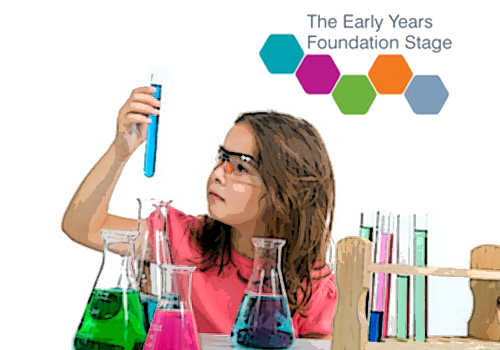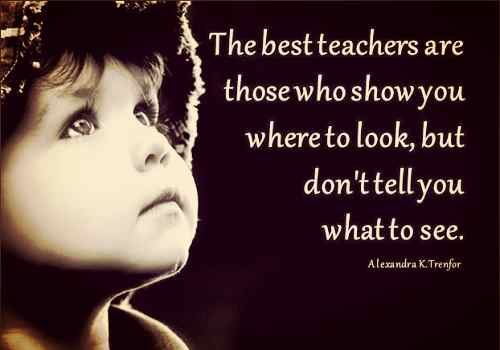Categories(658 Blogs)
Select Category
Watch Right Now
Teacher App - Class
Schedule & Attendance Management App
Parent App from Edsys

Best School Bus Tracking System

Cashless School - For Smart Schools of Tomorrow


Know About EYFS Inside Out

Each and every child deserves the best possible start in life. The development of a child is quick in the early years; the impact of a child’s experience between birth and age 5 is crucial and can affect the overall development. Childhood should be safe and secure, with the children freely expressing their potential.
Taking into consideration about the various factors that affect the development of children, Early Years Foundation Stage was introduced in order to make the early years of a child’s life productive and fruitful.
“Every journey starts with a simple step; the step must be placed right and with care”
Early Years Foundation Stage was introduced in 2008, recognizing the importance of the early period in a child’s life. It is a combined effort, to ensure better experience of the children. The childhood period is made beautiful by reducing stress.
EYFS reconstructs the overall environment of children. This system has received a large number of positive responses after its introduction. More and more educational institutions are adopting EYFS for making childhood better for their students.
Aims of EYFS
EYFS aims at the all-round development of children.
- Better health
- Stay safe
- Achieve while enjoying
- Always make positive contributions
- Personal, social and emotional peace and well-being
- Optimistic attitude towards learning
- Skill development
- Enhancing language
- Encouraging communication
- Reasoning and problem solving
- Better knowledge of the world around
- Physical and creative development
- Positive relationship
- Exploration through plays
The protecting shield of EYFS
EYFS curriculum helps ensure better environment to children and covers their development.
- EYFS ensures better security checks of the staffs
- Suitable and safe equipments which are appropriate for children are used
- The environment is taken into consideration and outdoor space is utilized in the curriculum for the active growth of children.
The working of EYFS
Each child has a unique profile. With the separate profiles, it becomes easy to access and monitor the development of children in his or her early years. The profile maintains idea about the characteristics of each child and the areas at which they are best at. The providers can interact with parents and discuss about the progress of children and can also facilitate extended learning at home.
How does EYFS function?
Primary concern of parents after admitting children to school is monitoring their performance. Because of the busy schedule, it becomes impossible for the parents to regularly derive updates about the child’s performance. Through EYFS framework, the development of the child is monitored stage by stage. The area in which a child is good at can be known through EYFS. This helps the parents to boost-up the children in order to sharpen their skills. The strength as well as the weakness of the children can be measured.
EYFS monitors the overall development of the children, both as a student and as a person. The following developments are noticed;
- Personal, social and emotional development
- Physical development
- Communication and language
- Creative development
- Knowledge and understanding about the world
- Problem solving, numeracy and reasoning
- Expressive art and design
Through EYFS, children will learn by the means of interaction, exploration and playing. They become more active which results in the development of their indoor and outside skills.
A ‘key person’ is assigned to each child to monitor his or her development and the responsibility of taking care of the child. The progress of the child can be made clear through the interactions with them as per the convenience of the parents. The written information about the development of the children received at age 2 and age 5 is an added advantage
Development of EYFS
When EYFS was initially introduced, there were a lot of controversies that surrounded it. People were concerned about the promises that EYFS made. Some were of the opinion that it could harm the child rather than making their future promising. There were many questions, doubts and worries. With time concerns began to melt and EYFS has proved itself to be one of the most successful pre-school curriculum made to better the development of children.
Working of EYFS
Children are given activities that must be performed. These activities are enjoyable to most children.. The area of a child’s interest can be calculated without much effort. The efforts made through EYFS have been great success.
- Freedom is given to the child to participate according to his or her interest
- No stress on the child
- Activities makes them more energetic and refreshing
- Children communicate more with others
- Enhances their confidence level
- The children become more happy with their surroundings and learning process
Some Facts
1) 85 % of EYFS adopters were of the opinion that parents supported the new framework. Anxiety about learning goals, expectations of formal and informal learning, general lack of awareness and disinterest were the answers when asked about the reaction of the parents.
2) Some EYFS adopters felt the lack of adequate information, poor local support and availability of training but 72 % felt that they have been adequately supported to deliver all the elements of the new frame work
3) Lack of time, resources and the training of staff to more specific problems were thee challenges that the respondents high lightened, when asked.
4) Child-led learning, user-friendly planning, good practice guidelines and improved record were the benefits, according to the respondents
5) 35 % were of the opinion that only Ofsted (Office for Standards in Education) had been trained adequately to assess their service as per the new framework.
Recent Blogs
Our Educational Services
Popular Blogs
Subscribe

SUBSCRIBE TO OUR NEWSLETTER
Sign Up and Recieve the Latest News
Don’t Worry, We Don’t SpamExplore Our Extensive Researched Educational App Directory
Visit Now














